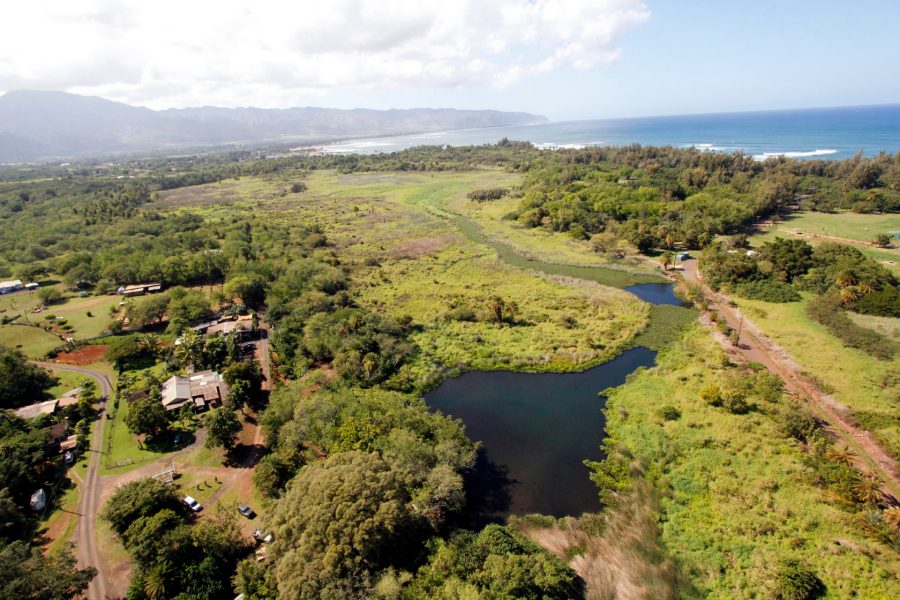HONOLULU (KHON2) — A new innovative project which involves growing camelina sativa, a versatile oilseed plant, on farms across the Hawaiian Islands to produce renewable diesel and sustainable aviation fuel (SAF) is making big waves in farming in Hawaiʻi.
KHON2.com sat down with Chris Bennett, Vice President of Sustainable Energy Solutions at Pono Pacific, to discuss this groundbreaking initiative aimed at transforming Hawai‘i’s energy landscape.
The project, in partnership with Par Hawaii, seeks to create a local source of biofuel feedstock for Par’s refinery on O‘ahu. This initiative, now in the field trial phase, aims to reduce Hawai‘i’s reliance on imported crude oil and cut carbon emissions significantly.
A local solution for global problems
Pono Pacific and Par Hawaii’s collaboration on this biofuel project marks a significant step towards sustainability.
Par Hawaii is currently retrofitting its refinery in Kapolei to handle biofuel feedstocks, with the goal of producing locally sourced biofuels by the end of 2025.
“The refining process for these biofuels is similar to traditional petroleum-based fuels,” explained Bennett. “The resulting products, like renewable diesel and sustainable aviation fuel, are ‘drop-in’ fuels. This means they can be used in existing pipelines, engines, and transportation systems without any modifications.”
Economic impact for Hawaiʻi
This initiative promises substantial economic benefits for Hawaiʻi. Bennett highlights the opportunity it presents for local farmers.
“Hawaiʻi has a lot of fallow land that was once used for plantation agriculture, like pineapple and sugar cane,” said Bennett. “With crops like camelina, farmers can use this land to grow a rotational cover crop that complements food production rather than competing with it.”
By integrating camelina into their crop rotations, farmers can grow it alongside their primary food crops.
This not only enhances soil health but also provides an additional revenue stream through the sale of camelina oil for biofuel production.
“This project offers a new economic avenue for local farmers, helping to boost the agricultural economy while supporting sustainable practices,” added Bennett.
Environmental benefits
The environmental benefits of this project are manifold. Camelina-based jet fuel can reduce net carbon emissions by up to 80%, playing a crucial role in Hawaiʻi’s efforts to combat global warming.
“Hawaiʻi has made significant progress in decarbonizing its electrical grid through rooftop solar and other adaptations,” noted Bennett. “However, the transportation fuel sector still lags behind. This project can make a big dent in our carbon emissions, particularly in aviation.”.
Moreover, camelina serves as an excellent cover crop, protecting soil from erosion, absorbing nutrients, and reducing nitrogen and phosphorus contamination of groundwater.
It grows quickly, from seed to harvest in just four to five weeks, making it a highly efficient crop for sustainable agriculture.
Addressing invasive species concerns
Concerns about the introduction of non-native species are always paramount in Hawaiʻi.
Bennett assures that camelina has been rigorously tested and approved as a non-invasive species.
“The trials, conducted in collaboration with the state, have shown that camelina does not compete well with weeds and other plants in the wild,” explained Bennett. “It needs to be cultivated to thrive, meaning it won’t spread uncontrollably.”
This careful consideration ensures that camelina can be integrated into local farming practices without threatening native ecosystems.
“It’s meant to complement current food production, not compete with it. We see it as a way to enhance agricultural sustainability in Hawaiʻi,” added Bennett.
Practical implications and future prospects
The partnership between Pono Pacific and Par Hawaii aims to produce renewable fuels locally, making them accessible to all Hawaiʻi residents and businesses.
Par Hawaii, the state’s leading provider of refined petroleum products, has committed a $90 million investment to this project.
This significant investment underscores the potential economic and environmental benefits for the islands.
Eric Wright, President of Par Hawaii, expresses excitement about the project’s progress.
“Locally produced sustainable aviation fuels will be a game-changer in reducing greenhouse gas emissions and helping to make our visitor industry more sustainable,” stated Wright. “This initiative aligns perfectly with our state’s goal of transitioning to 100% renewable energy by 2045.”
Pono Pacific, known for its commitment to conservation and sustainability, is expanding its impact through innovative projects like this one.
The company manages over 25,000 acres of land across Hawai‘i and has been instrumental in restoring sensitive ecosystems and promoting indigenous species.
“Producing SAF locally will undoubtedly create jobs and revenue for rural communities, creating a more sustainable economy for Hawai‘i,” said Bennett. “This initiative represents a significant step forward in balancing economic growth with environmental stewardship.”
With ongoing trials on four partner farms across O‘ahu, Maui, Hawai‘i Island and Kaua‘i, the future looks promising.
Click here for more information on Pono Pacific.
As these trials progress and the refinery retrofit nears completion, Hawaiʻi is poised to lead the way in sustainable aviation fuel production, setting a powerful example for the rest of the world.
